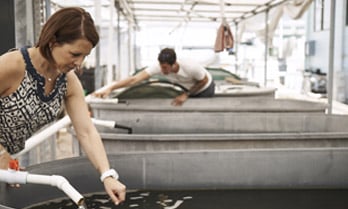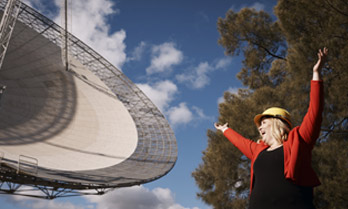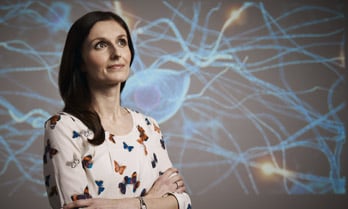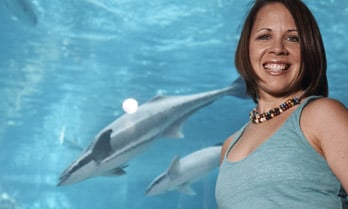Our 2017 Fellow - Jacq Romero
10 January 2018
After the whirlwind of being awarded the For Women in Science Fellowship, we asked our 2017 Fellows to tell us more about their research and what it meant to be awarded the Fellowship.
Understanding the world in quantum

Jacq is an experimental quantum physicist who wants to understand the difference between information encoded in quantum states that can take on an infinite number of values (or states), and classical information that we know and use today that only has two values.
By investigating information where the number of possible values is larger than 5, Jacq believes there is a possibility of discovering a new physics of information that has not yet been explored!
Jacq will utilise particles of light (photons), more specifically the information that is in the pattern or shape of the photon that have orbital angular momentum (OAM). Photons carrying information in OAM can serve as higher dimensional information carriers with interesting properties.
Your research is rather complex. Why is it important to understand quantum physics and how will research such as yours change our future?
The amount of data that is being transmitted and processed in our society today is unprecedented. We need more efficient information carriers, and we need to start thinking about the economics and security of information. How do we extract the most information from the fewest possible number of information carriers?
The exploration of quantum information opens up many exciting possibilities as we are able to view and manipulate information differently.
We already can transmit data very quickly by using the various properties of light. For example, you can transmit different wavelengths at the same time (multiplexing) and they can be separated from one another at the receiver (de-multiplexing). You can do the same for shapes of light, there is no theoretical upper limit so you can carry lots of information. More importantly, if you make that light quantum, aside from the high information capacity, you get more security as well. Going to higher dimensions is a natural solution to packing more information, at the same time promising security guaranteed by the laws of quantum physics.
The first step to unlocking the advantages of high-dimensional quantum information is understanding how quantum information works in this regime – this is what I will investigate experimentally.
You are both a mother of three young boys and a successful scientist within a male dominated field. What would you like to see happen to help other women scientist, who would also like to have a family, do so?
I would like to see a culture accepting of the idea that raising a family and maintaining a successful scientific career are not mutually exclusive.
Universities need to ensure that the work environment enables total participation of women in the face of caring responsibilities. Things like a room to express milk, parent rooms, childcare centres all help make women feel that they are included in the vision of the university.
I am still a scientist because I was lucky enough to have mentors— who were mostly males— who did not make me feel any less of a scientist because I was juggling family with a science career. Not all women are that lucky, so my wish really is for there to be more mentors— who will more often be male just because physics is male-dominated field— who would support women in their science careers irrespective of caring responsibilities.
I would like to see more successful women! Women naturally focus on the odds of success— so the lack of women at the top really feeds a vicious cycle: few women will go to science because there are only a few successful women at the top, but few women going into science naturally leads to few women succeeding in science. That cycle has to stop, the solution at the start may have to be more structural than cultural, but it definitely will take nothing less than a culture change for us to see more women scientists.



